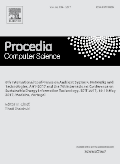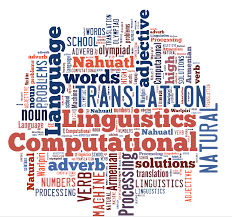ACLing 2025
ACLing 2025: 7th International Conference on AI in Computational Linguistics
Dec. 6-7, 2025, Dubai, UAE
♠ Hybrid Conference ♠
New!
- Looking forward to the ACLing 2025: 8th International Conference on AI in Computational Linguistics !!!
- For ACLing 2025 Program & online Access [CLICK HERE: Acling Program]
- Opening Livestream link: [Youtube]
- Keynote Speech Livestream link: [Youtube]
- Welcome to ACLing 2025 conference official website.
- Deadlines are extended!
- Publication with Procedia Computer Science is confirmed.
- Submission link is now activated.
- Keynote speaker is Dr. Muhammad Abdul-Mageed, The University of British Columbia, Canada (https://mageed.arts.ubc.ca/).
|
About the Conference
ACLing 2025 marks the 7th edition of the Computational Linguistics conference series (ACLing). The conference seeks to bring together renowned academicians, scientists, researchers, and practitioners from around the world to exchange new ideas and discoveries in Computational Linguistics from an AI perspective. As more linguistic information becomes accessible via the web, social media, and intranet services, this field has grown in importance. The conference covers AI theory and practice in Computational Linguistics, including text, audio, image, and video, regardless of language. The British University in Dubai was chosen to organize and host the ACLing conference due to its mission to provide world-class scholarship, education, and research. For a downloadable PDF of ACLing 2025 Call for Papers (CFP) [Download Here: ACLing25_7th_CFP]
Why ACLing Conference Series?
- Esteemed publication with Standard Citation Indexing and significant Impact. ACLing 2025 is the seventh editon of the ACLing conference series. In the first and second editions, the conference was held concurrently with the esteemed CICLing conference, acknowledged by the computational linguistics research community. TIn recent years, the conference has achieved considerable success, and it is anticipated that ACLing 2025 will continue this trend, establishing itself as a prominent platform for AI research in Computational Linguistics. All accepted papers at ACLing 2025 will be published in Procedia Computer Science (ISSN: 1877-0509) by ELSEVIER (confirmed), as a peer-reviewed journal. Procedia Computer Science is a distinguished publication esteemed in numerous places for academic advancement. The standard for assessing Citation Impact indicates that ACLing (Procedia in Computer Science) proceedings are indexed in Scopus (See Why Scopus?), the largest abstract and citation database of peer-reviewed literature, including scientific journals, books, and conference proceedings, where one can also view CiteScore rank and make comparisons with other peer-reviewed literature in the Computer Science domain. Nonetheless, Procedia Computer Science is ranked by SJR (scimago). The conference proceedings have been cataloged in DBLP for its previous conferences.
- Procedia is a journal, and the conference proceedings constitute one issue. Elsevier will publish the ACLing2024 Proceedings as a distinct issue in Procedia.
 All published manuscripts must adhere to a high professional quality and comply with the criteria established by Elsevier. Procedia, as a journal, possesses an ISSN rather than an ISBN. Each peer-reviewed research article published in Procedia Computer will be granted a DOI.
All published manuscripts must adhere to a high professional quality and comply with the criteria established by Elsevier. Procedia, as a journal, possesses an ISSN rather than an ISBN. Each peer-reviewed research article published in Procedia Computer will be granted a DOI. - Open Access (OA) and Expedited Publication. All peer-reviewed research articles published in Procedia Computer Science, including ACLing2025, will be accessible open access (i.e., available online, immediately, and free of charge). It is published online on ScienceDirect within approximately two months of the approval of the camera-ready submissions. The whole proceedings are accessible online through ScienceDirect, or any connected service, and the publisher shall provide them at no cost to all users. This indicates that papers are universally and freely accessible online indefinitely, in a readily comprehensible format immediately upon publishing. Authors are not required to incur additional publication fees for open access. Elsevier will guarantee that the Proceedings content is published and disseminated with the correct copyright notice attributed to the author(s) or employer.
- General interest. The conference encompasses a comprehensive range of subjects pertaining to AI in computational linguistics. This renders it appealing to individuals from diverse backgrounds, fostering engaging debates and the exchange of viewpoints. The talks and presentations offer researchers the opportunity to share their initiatives and research with colleagues from various global locations.
- Opportunities for Collaborative Research Initiatives. The conference aims to unite individuals from many fields in AI and computational linguistics to foster the exchange of ideas, facilitate personal connections, and stimulate the emergence of collaborative research activities that enhance their research opportunities.
- Opportunities for Interaction and Networking. The conference is designed for a cohort of industry people and academic researchers. This fosters an easygoing and amicable ambiance, simulating a convivial gathering rather than a formal occasion. This presents an ideal chance for senior academics and emerging researchers to engage and cultivate innovative concepts. The forthcoming conference will provide them with valuable feedback, both official and informal, which is advantageous for the preparation of high-quality research articles. Evidence exists of consistent attendance and contributions from participants who deem the conference beneficial for their interests.
- ACLing in Dubai. Conducting a conference on Artificial Intelligence in Computational Linguistics in Dubai amalgamates international expertise and technical advancement in a flourishing center. The multicultural environment of Dubai promotes varied perspectives and partnerships, enhancing dialogues on AI’s impact on linguistic study. The city’s dedication to advancing AI corresponds with the conference’s aim of investigating innovative applications, driving progress in natural language processing and machine learning as well as large language models. This strategic assembly utilizes Dubai’s vibrant atmosphere to promote multidisciplinary discussions, advancing innovative solutions and expanding the frontiers of AI-driven language research and applications worldwide.
Previous ACLing Proceedings issues Published in Procedia Computer Science Journal:
- AI in Computational Linguistics, Procedia Computer Science, Elsevier, Volume 244, Pages 1-470, 2024.[Link: ACLing2024 Proceedings]. See also [DBLP: ACLing2024]
- AI in Computational Linguistics, Procedia Computer Science, Elsevier, Volume 189, Pages 1-390, 2021. [Link: ACLing2021 Proceedings]. See also [DBLP: ACLing2021]
- Arabic Computational Linguistics, Procedia Computer Science, Elsevier, Volume 142, Pages 1-356, 2018. [Link: ACLing2018 Proceedings]. See also [DBLP: ACLing2018]
- Arabic Computational Linguistics, Procedia Computer Science, Elsevier, Volume 117, Pages 1–312, 2017. [Link: ACLing2017 Proceedings]. See also [DBLP: ACLing2017]
You can check the Google Scholar citation impact so far: ACLing Scholar Citations.
Note that after ACLing 2021, the focus has shifted to “AI in Computational Linguistics” without without concentrating on a particular natural language.
Important Dates (Extended!)
- Submission Deadline:
27 October 202510 November 2025 - Acceptance Notifications:
3 November 202515 November 2025 - Final camera-ready Submission:
10 November 202517 November 2025 - Author Registration & Payment:
17 November 202520 November 2025 - Conference:
6 – 7 December 2025
ACLing allows a hybrid synchronous presentation for authors who register their papers. Authors can elect to either do a virtual presentation or attend the conference and present in person.
Venue
- Physical: The British University in Dubai, Dubai, UAE, and
- Virtual: Online sessions via Conference Program
ACLing2025 Contact:
- Khaled Shaalan: khaled.shaalan
@buid.ac.ae - Samhaa R. El-Beltagy: samhaa@computer.org
- Taher M. Ghazal: taher.ghazal@ieee.org
General Inquiries:
- General Contact: acling2025@gmail.com
Sponsors



